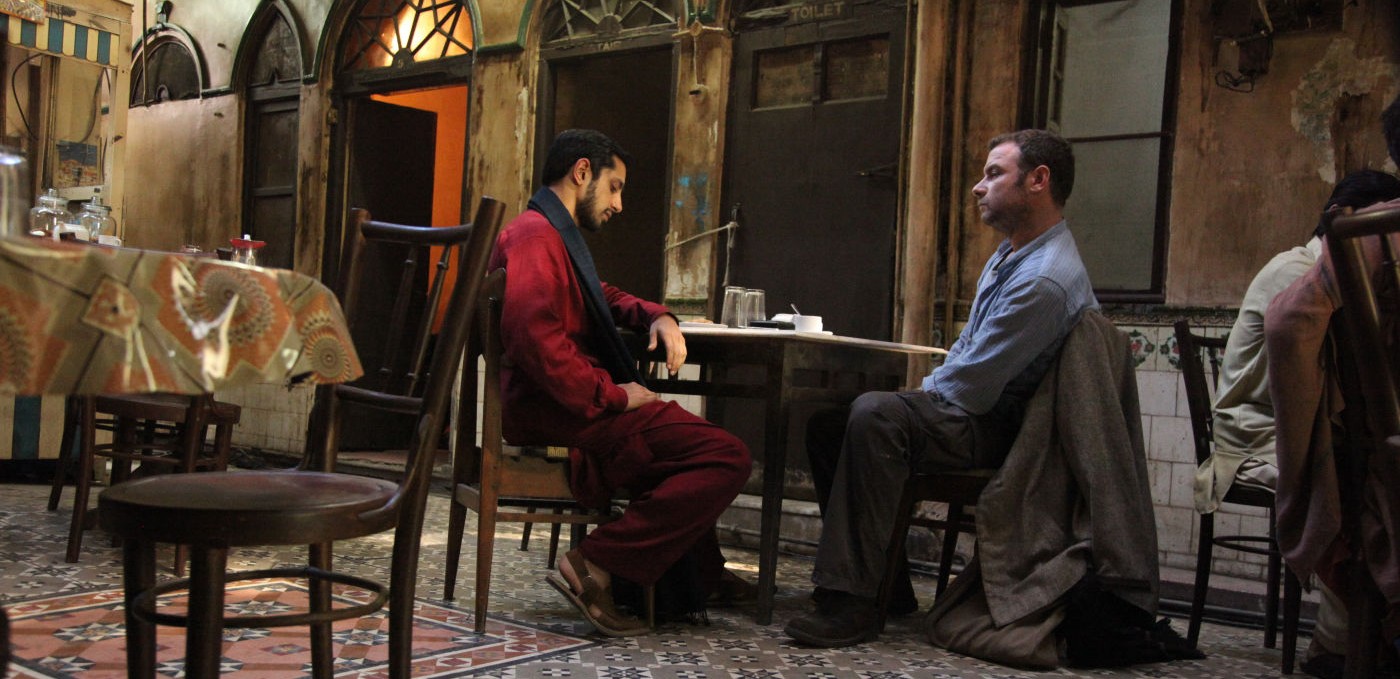A fairly basic story told via characters that don’t really engage our sympathy or a great deal of our interest, but it at least flirts with the point it’s trying to make. Based on the similarly titled and highly acclaimed novel (so much so, many universities give it as a welcoming present to new undergrads) by Mohsin Hamid, the story follows that of Changez (Urdu for Genghis, pronounced Chungez) as he is being interviewed in Pakistan by an American journalist (Liev Schreiber) over whether or not he has anything to do with the kidnapping of a local American academic, and by extension, may be the fundamentalist in the title. We go on a journey through his past via the tale he tells in the interview, seeing him move to America as a young man from his native Pakistan for academic pursuits, and finding eventual financial success within the ranks of an internationally recognised company, and then being stigmatised and threatened in the aftermath of 9/11 based upon the colour of his skin.
However, the high paid job he has sees him analyse companies’ productivity, looking for ways to make improvements which invariably involves making life worse for the assembly line staff, which Changez does with ruthless aplomb, and so it becomes a little difficult to feel any real sympathy for him when, for instance, he is harangued by security officials who suspect he may be a terrorist, especially when he seems to be released the same day with no charges having been made or repercussions of any kind. He grows a beard out of what we assume to be spite, a deliberate attempt to do something which in theory he has every right too, but in reality he lets it grow so scruffy that the majority of companies that deal with the public are going to take issue with it, regardless of ethnicity. The relationship with his girlfriend, played by Kate Hudson, is also used to accentuate the unfair tension he begins to feel everywhere in his New York life, and comes to constitute another element in his general crisis of faith, but really everything about her character and their relationship feels loosely defined at best, with highs that don’t even register and lows that potter around the realms of lackadaisical whimsy.
Riz Ahmed (‘Four Lions’, ‘iLL Manors’) plays Changez, and he does quite a good job, although nothing about his portrayal is particularly enlivening. He also narrated the book for BBC Radio 4, quite possibly what brought him to the attention of acclaimed Indian director Mira Nair (‘Monsoon Wedding’, ‘Salaam Bombay’) for this adaptation. The film hints at the sort of cycle of violence that might send someone down the road to fundamentalism, but really for the most part what we see is a young man going through some relatively undramatic problems with regards to alienation and relationships, and frankly if he were such a bastard in the first place, turfing thousands of working class people out of jobs (something which historically does lead to extremism), then I seriously doubt he would let having to endure a little anal probing at the airport and a slight rebuke from his father stand in the way of his making more inordinate amounts of money in the lucrative career that is displayed as his for the taking. There is also a lot of mention of CIA involvement in Pakistan, but details are never discussed, adding to the strains of conceit that echo throughout the entirety of the film.

